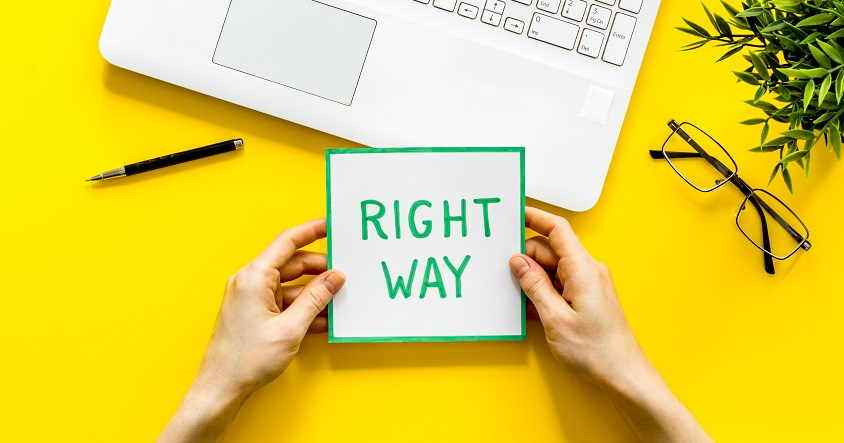Is Amazon FBA Actually Worth It?

If you’re an Amazon seller or thinking about selling on Amazon, you’ve probably wondered if Amazon FBA is worth it. Of course, weighing up all advantages and disadvantages is critical. We’ve put together a concise rundown of what FBA is, how it works, and all the details you’ll need to decide whether or not you should sell on Amazon FBA.
What Is Amazon FBA, and How Does It Work?
Fulfillment by Amazon is a service provided by Amazon that allows third-party businesses to automate their order fulfillment and delivery processes. Amazon does a lot of work for sellers: manages everything from shipment to returns and refunds to product warehousing in its warehouses. Of course, you pay for this. But what exactly do you get? It’s not only access to one of the most active fulfillment networks in the world, but also customer service round the clock! Isn’t it something that makes life easier for sellers? Definitely, it is. But in this article we will be transparent with you, so we will cover not only advantages but disadvantages as well!
Now you might wonder what the cost of FBA is? Okay, let’s take a look.
Is Amazon FBA worth it? – The Costs of FBA
With the Amazon FBA, you pay storage and fulfillment costs. The more inventory you have, the higher your costs will be. You will also have to pay extra fees if you retain an item for more than 180 days.
Furthermore, Amazon keeps track of stranded inventory, which is goods that are stored in an Amazon warehouse but aren’t for sale. You lose money on stranded goods, but Amazon makes it easier by offering a stranded inventory report.
Settlement fee reports may be found in your FBA dashboard’s reporting area, and they will show you what type of fees you’re paying to Amazon as part of this program.
How much does Amazon FBA charge? For starters, Amazon deducts 15% off nearly every goods sold on their marketplace. Amazon will deduct additional cost for delivery and processing of your customers’ orders if you use FBA. Most of the time, the pricing is less expensive than if you processed and sent the orders yourself. You will be charged an additional $1 for each product if you use an individual seller account.
Professional seller accounts pay a $40 monthly subscription charge, therefore this extra $1 per product is only available to individual accounts.
Read more about Amazon FBA and seller fees here.
Okay, it’s time to consider the most important aspect: Is selling on Amazon FBA worth it? Let’s take pros and cons into consideration.
The Pros and Cons of FBA

1. Pros of FBA.
These things stand out when it comes to the question “Is selling on Amazon FBA worth it?”:
You Save a Lot of Time
By enrolling in the FBA program, you can concentrate on growing your business. You can rest easy knowing that Amazon employees are responding to your customers’ needs and concerns 24 hours a day, seven days a week. You also save time by not having to deal with client returns or traveling to and from courier offices to transport your goods. That means you have a lot more time to develop your business on other aspects, e. g. product research.
Shipment and Logistics
You don’t have to do anything since Amazon does it all for you. All that’s left to do is maintain track of your listings, make sure they’re stocked with stuff, and leave the fulfillment to Amazon. For a reasonable expense, you can remove a significant burden off your shoulders. Moreover, you save your money on personnel and you don’t need to have your own infrastructure. Sounds good, doesn’t it?
Fast Delivery
FBA products receive the Prime badge immediately and are eligible for Prime free delivery (to the customer) and faster shipment timeframes. Furthermore, because it’s included in the service, you won’t have to pay or charge premium shipping costs to do so. Since fast delivery and Prime benefits are a major reason for customers to buy on the marketplace, this is a huge advantage for sellers and should always be kept in mind when one tries to decide “Is Amazon FBA worth it?”.
Managing Returns
Because returns and refunds are considered part of the fulfillment process, FBA takes care of them in addition to sales. This relieves you of yet another burden.
You Have a Better Chance of Receiving the Buy Box
The Buy Box is positioned in the lower right corner of a product page, next to the ‘Buy now’ button. Registering for FBA does not ensure that you will receive a Buy Box, but it does provide you a greater probability than those who do not.
2. Cons of FBA.
So, is Amazon FBA worth it in the end? For this, it’s critical to consider the reasons why FBA might not be the best fit for your requirements, too. Here are a few things to think about:
You Have to Pay Fees
While paying fees isn’t necessarily a negative if you don’t earn a lot of sales, it may be. In addition to the 15% referral fee for using their platform, FBA will charge shipping, storage, and handling costs. Fortunately, Amazon provides an easy FBA calculator that can help you.
Long-Term Storage Fees
You’ll need to account for them in your budget to ensure that FBA remains a viable option for your business. Inventory that has been in a fulfillment center for more than 365 days is charged a monthly long-term storage fee in addition to the monthly inventory storage fee. The fee is stored per unit and rated based on unit volume or per unit, whichever is greater. The amount is $6.90 per cubic foot or $0.15 per unit, whichever is greater. So it can be quite expensive and might affect the question “Is Amazon FBA worth it?” highly. We recommend returning goods before the expiration of 365 days.
Update for all the European sellers: Starting May 15, 2022, Amazon Europe will charge the sellers a fee for items from several categories which have been stored in a fulfillment center for 331 to 365 days (e.g. 37 euros per cubic meter in Germany). The fee won’t apply to items from the following categories:
- Clothing,
- Shoes and Bags and
- Watches and Jewelry.
Sales Tax
Sales tax is administered by the states. If your company is based in one state but has inventory stored in another, you may be unsure which tax rate to apply. Fortunately, there are tools to assist you with automating different tax scenarios and guidelines, as well as determining what to charge, and Amazon can handle the majority of this for you.
Requirements for Product Preparation
For items going into the warehouse to be fulfilled through FBA, Amazon has its own set of regulations. You must verify that all of your items are properly prepared before shipping them to Amazon, including how they are packaged, labeled, and sent in accordance with FBA inventory warehousing requirements.
Payment of Amazon FBA Fees
You can’t put off paying Amazon what you owe. You can’t use the proceeds from the next sale to cover the costs of the previous one. Before making any payment to you, Amazon will deduct all costs payable to them.
Lost Control
When you send your items to Amazon, you relinquish control to the firm. You won’t be able to brand your packages anymore, and you won’t be able to communicate with your consumers. Your items will be labeled with Amazon FBA’s packaging and brand.
How Can I Get Started With Amazon FBA?
The seller retains control over issues such as product quality, availability, and competition after he or she decided positively on the question “Is Amazon FBA worth it?”.
You must have an Amazon seller account before you can start selling on Amazon FBA. This account is to be used to sign up for FBA through Seller Central. The next step is to create an Amazon listing. After that, you pack your goods and ship them to an Amazon warehouse near you.
Okay, let’s consider some steps of how Amazon FBA works.
- You ship things to an Amazon fulfillment center in the first step. If you do not create your own goods, the manufacturer might supply them to you instead. In the United States, there are around 100 warehouses. Depending on the type of product, Amazon will advise you where to ship it.
- After Amazon receives your products, warehouse workers will sort them and store them with a tracking code. Damage and loss are uncommon, but if your items are damaged or lost, Amazon can refund you. However, FBA errors can only be detected with tremendous effort without smart automation. If you do not put in this effort for your business, you will most likely lose a significant amount of money due to unclaimed refunds. That’s why we recommend using Lost&Found tool by SELLERLOGIC.
- When a consumer places an order for one of your products, Amazon will track it down and pack it for you. Your inventory will be updated on a regular basis. Amazon will send the goods according to the method selected by the customer.
- You will be paid every two weeks for sales made through Amazon FBA.

So, Is Amazon FBA Worth It?
Amazon FBA can significantly help businesses grow. Expansion of the business would need fresh planning and conception, not to mention a large sum of money.
Amazon will continue to gain popularity and provide user-friendly capabilities for new sellers, making it simpler for those who are just getting started in eCommerce as well as those who are currently seeing tremendous development. Amazon understands that supporting its sellers makes sense because it is the third-party seller who keeps the company afloat.
It’s not too late to sell on Amazon in 2022. There’s still time to seize the moment. Business success has remained mostly the same; to be a successful seller, you need a strategy and a plan.
Now you need to select less competitive items and use marketing methods like strong product photography to push them to the top of the search results page. You can read about selecting a product to sell on Amazon and advertising in our blog.

Final Thoughts on “Is Amazon FBA worth it?”
If it is worthwhile to sell on Amazon FBA depends on your line of business. The advantages of Amazon FBA are that your customers will receive good service and you will be able to get more free time to focus on other tasks.
Consider all the pros and cons that we listed above and you will surely make the decision that’s best for your business!
Frequently Asked Questions
It is not rocket science if you use automatic tools that do a lot of work for you. Check out our SELLERLOGIC Repricer and Lost&Found tool.
It is not. You can get all the information about FBA fees here.
Amazon FBA courses can give you some information about how to sell, but we don’t consider them to be absolutely necessary.
Generally speaking, yes. Of course, it depends on many factors such as how you promote your products, which products you sell, and if you have good reviews.
Image credits in order of appearance: ©New Africa – stock.adobe.com / © NeoLeo – stock.adobe.com / © christianchan – stock.adobe.com/© 9dreamstudio – stock.adobe.com





